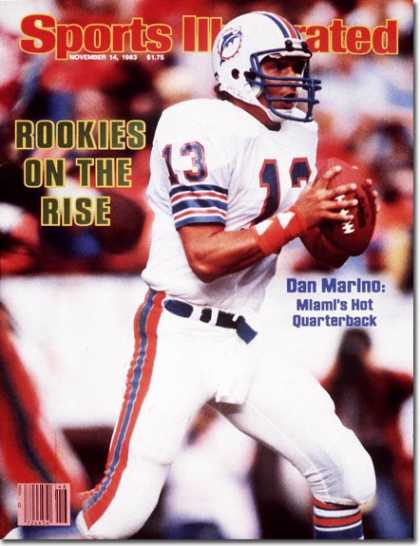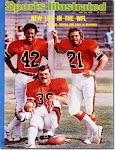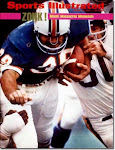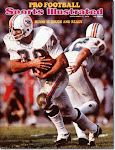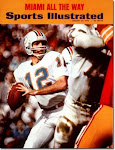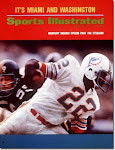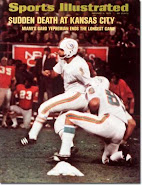I wish I'd thought of adding this earlier!
__________________________________
Wednesday June 28th, 2006
After reading this article from Der Spiegel, I couldn't pass up the chance to send it along, while reminding you of a prior email of mine from April regarding the myriad ups-and-downs of the
Tony Blair-Gordon Brown relationship, and how one of the BBC's Wash. correspondents, Katty Kay http://www.ctforum.org/popups/bio.asp?event_bio_image_id=3136 seems intent on becoming, singlehandedly, a one-woman mis-information bureau.
So you DON'T make the mistake in the future of putting any stock in what she says, here's an updated version of that earlier email.
On NPR's Diane Riehm Show http://wamu.org/programs/dr/ as well as on CNBC/syndicated Chris Matthews Show on weekends, Kay's constantly popping off about things she doesn't have any firm knowledge of, making the kind of banal comments that while uncomfortable enough to hear if uttered over the holidays by a visiting, know-it-all relative, almost certainly ought to get you dis-invited permanently from future gabfests of professional journalists.
After listening to her last year -perhaps one time too many- I was tempted to send an email to the DR Show's producers about her, saying simply:
Repeating something you read in The Economist isn't analysis, it's merely repetition, and an obvious repition at that; have the good manners to give credit for the material you 'borrow.'
Last October 2nd, on their excellent Panorama show, I listened to a great one-hour profile of Gordon Brown on BBC Radio that surpasses anything I've ever heard or seen on any American politician by the U.S. media.
http://news.bbc.co.uk/2/hi/programmes/panorama/4305902.stm
I've certainly heard more than my share of slanted programming on the BBC over the years, but this profile, titled "Brown's Miracle Economy," almost made up for it, since it was all the things I wish the American TV cablenets here were:
informative, humorous, and full of interesting anecdotes from people who really know Brown in-depth, both supporters and critics, not just journos trying to ingratiate themself, like so much of
John McCain's media herd, ie. Boys on the Bus II!.
Yes, I still remember watching the Chicago Tribune's James Warren at the McCain "Straight Talk Express" public rally in downtown Alexandria with some friends, and seeing that Warren and another reporter friend -perhaps the Trib's Steve Daley?- even brought their kids to the event.
At that event, I spent about 10 minutes chatting on a bench with a very nice and friendly woman before the McCain bus and entourage showed up in all its red, white and blue glory.
She was too modest to tell me -before it dawned on me- that she was actually John McCain's sister-in-law.
As it happens, I voted for John McCain in the 2000 Virginia Primary since Al Gore didn't have any competition on the Democratic side and who wants to vote for someone unopposed?
Certainly not me!
(Just so you know, in keeping with my DLC tendencies, I voted for Gore over Mike Dukakis in the 1988 Florida primary, which I did just before kissing my Mom goodbye and driving up to DC for good, listening to the results of Super Tuesday on the radio as I drove up the East Coast, hearing the excuses and alibis of local, state and national candidates I'd never heard of, as I made my way thru the absurdly long state Florida, pecan-loving rest stops in Georgia, the come-hither appeal of South of the Border in the Carolinas and numerous road tolls in The Dominion.)
That's why I've voted for myself before since moving to South Florida, for congress in 2006, since I see the incumbent congressman, Kendrick Meek, as such an unappealing and intellectual lightweight for reasons that I can't get fully into here but which are numerous and instructive.
[SouthBeachHoosier readers-
I will have some very critical posts on Meek in the next few days that I've had in draf form for many months, pre-dating the current heat he's catching now due to the Miami Herald finally disclosing the particular involvement of him and his mother, Carrie, the previous rep for my district, in securing county and federal housing funds.
Yes, I live in his CD despite the fact that I live less than two miles from the beach in Broward County, unlike other fellow congressional constituents who live in Liberty City, Overtown, Opa-Locka and Miami Gardens in Miami-Dade County, which is, after all, why they call it gerrymandering, oui?
The area immediately East of me is actually represnted by a woman whom I loathe even more than I dislike Meek, a woman whose CD is located 99% west of me, Debbie Wasserman-Schultz, another longtime bete noire of mine, as you'll soon see, due to her tendency to comfort the affluent and powerful in her CD, and her attempt to become some sort of young & female Jewish political superstar of the sort that other congressmen and women like to have show up at their fundraising events across the country, even though she's little more than a run-of-the-mill rep herself, since my younger sister is represented by her.
You may know DWS better for giving -along with Meek and Rep. Ryan of Ohio- highly partisan and predictable speeches -poorly- in the well of the House at midnight, when you're waiting for the regularly scheduled tape of a program you missed earlier on C-SPAN.
The Meeks involvement in an aspect of the greater South Florida public housing scnadal that threatens to lead to the feds actually taking over the county's program because of criminal neglect, is but a small part of what the Herald's Debbie Cenzipper the Pulizer Prize just a few weeks ago. As you'll recall, the herald kept it on the downn-low that she was leaving for the washington Post and had signed to do so even before she was finsihed with her series.]
The Panorama program went into great detail about Brown's many personal and political failings, specifically, his demonstrated lack of the retail political touch that Blair & Clinton have mastered, which, to be fair, is uncommon.
More to the point, though, they examined how that particular deficiency would play itself out to a British public that, whether they liked Blair now or not, had, in fact, gotten quite used to Tony Blair's natural quick wit and wonk brain, not to mention, his sense of ease among voters and
his unusually close personal relationships with Clinton and Bush 43, even when they disagreed over specific policies.
It's an advantage(!) to be represented by someone who doesn't stumble over the English language, as former Ball State Cardinal and native Hoosier David Letterman consciously points out in his running feature on Bush-speak.
Those aren't easily replicated genes.
[This latter point was brought home to me last year, when a college friend of mine, now living in Notting Hill, sent me a DVD of all the 2005 British political TV ads.
I saw for myself how utterly stiff Brown was in comparison with Blair, never more so than in the Labour Party's big TV ad right before the election, with the two of them seated around a table talking.
(This was when the British public's desire to know when Blair would resign was literally at a fever pitch.)
The side-by-side comparison with Blair did Brown no favors, as some political analysts even suggested that Brown's disquieting appearance in the ad was at least partly responsible for some losses in traditional Labour strongholds.
In short, Brown gets in the door, but he doesn't close the sale.
The best TV political ad I saw was the Conservative Party's, built around their "Are You Thinking What We're Thinking" slogan, featuring normal working-class women and youth of different cultures and backgrounds, talking about seizing the opportunities that Britain offers, and a willingness to work hard and 'play by the rules' for life's rewards -and expecting others to do the same.
I was literally speechless after seeing it.
If I'm any judge, they were exactly the sort of ads that DLC Dems should be using in places like Tenn., N.C. or the Midwest, among other places -but aren't and won't.
In short, the sort of ad that if Harold Ford wasn't Harold Ford, might actually help him in that Tenn. Senate race that he'll probably lose, but which a smart and engaging John Edwards should and could've used before but can't now because he's damaged goods, rather than
continuing to rely on his divisive 'two Americas' spiel.
Or maybe I'm simply 'projecting' the sort of national Democratic Party I want to be able to vote for again -some day.]
A few days after hearing the BBC broadcast, which I taped, I heard Kay saying things that ran counter to what the BBC program had explained in depth, but naturally, as is so often the case, none of the other panelists were brave enough to correct her mistakes.
Then, in late December, on the Matthews CNBC panel show, when asked to survey the political landscape and go out on a limb and name a dark horse newsmaker for 2006, she said, yes, that's right: "Barack Obama."
Wow, naming someone that's already been on the cover of Newsweek?
Way to go out on a limb!
Conclusion: Katty Kay's no expert!
Consider yourselves warned!
_____________________________________________________________
SPIEGEL ONLINE - June 27, 2006, 05:57 PMURL: http://service.spiegel.de/cache/international/spiegel/0,1518,423811,00.html
Britain's Eternal Second-in-Command Slowly, Gordon Is Growing Impatient with Tony Blair
By Thomas Hüetlin in London
Tony Blair is more unpopular than ever. He's promised to hand over the reins to Chancellor of the Exchequer Gordon Brown, but so far it's been an empty promise. Meanwhile, the prime minister's political rival is growing increasingly impatient.
It's noon at London's Heathrow Airport as Gordon Brown strides into the world's largest passenger airplane with the confident gait of a former rugby player. His chest pumped up to full capacity, his jaw as square as a brick, his hair characteristically unkempt, Brown, surrounded by his entourage, strolls through the Airbus A380 towards the cockpit and sits down in the pilot's seat. "Do you like the feeling of sitting in the leadership position?" someone asks. Brown, his mouth twisting into a smile, responds: "I'm here, but no one has awarded me my pilot's license yet."
AP
Britain's Prime Minister Tony Blair, left, and Chancellor of the Exchequer Gordon Brown
The next day, the British Chancellor of the Exchequer once again finds himself near an important button. At a ceremony to open a new underwater stage at Pinewood Studios, Brown flicks a switch and a blue VW Golf is dropped into a swimming pool. As it sinks, he jokes: "What a wonderful sensation of power -- not exactly what one has as Chancellor of the Exchequer."
All too obvious allusions and making himself the butt of jokes are currently the only way Brown is able to publicly put British voters, the Labour Party and the most powerful man in the country on notice that he has served long enough as the government's second-in-command. He wants the top job, finally, the job at Number 10 Downing Street.
Brown has waited more than 12 years to become the charismatic Tony Blair's successor. But the time never seemed right for Blair, who repeatedly postponed the decision -- most recently ahead of his third election victory, when he promised not to run for prime minister a fourth time if voted into office. But with each new day in which Brown is once again confronted with his powerlessness, he seems more and more like an eternal second-in-command.
Fixated on the idea that the process of political erosion plaguing his Labour Party can only be stopped with him at the helm, Blair is playing for time. Opinion polls have the governing party seven percentage points behind the opposition Conservatives. The prime minister hopes that his reform program will help him regain the confidence of voters, especially among the upwardly mobile middle classes in southern and central England. His only remaining asset in this campaign for voter support is a self-confidence bordering on ignorance. To boost his own profile, Blair has offered his Chancellor of the Exchequer a new compromise -- one intended to bring Brown a bit closer to his goal. Blair has said that he will guarantee his successor a "stable and orderly transition," one that gives Brown sufficient time "to establish himself." But when does he plan to resign? No comment. "Announcing such a date," says one Labour member of parliament (MP), displaying a typically British fondness of warlike metaphors, "would be just as crazy as announcing the day on which Allied forces landed in Normandy."
An especially malicious facet of Blair's amorphous promise was his remark that Brown "will be absolutely New Labour to his fingertips." Brown has remained deferential, as he was last week when, to the dismay of Labour's left wing, he called for a revamping of Britain's nuclear weapons program. Should the Chancellor of the Exchequer deviate from this position in the future, Blair could threaten to withdraw his support for Brown becoming his successor.
DER SPIEGEL
Graphic: Blair's Descent
The prospect of succeeding Blair isn't Brown's only driving force. He is also motivated by the experiences of his childhood in Kirkcaldy, a small industrial city on the west coast of Scotland and, more specifically, in the town's St. Brycedale Church. In his sermons, Brown's father, who was a pastor at the church, often preached that the individual is insignificant, that the individual must serve the community and that the individual has a duty to make the world a less unjust place through hard work.
This was no abstract set of virtues during Brown's childhood, but bitter reality. The sick, the poor and the needy -- the casualties of a dying industrial town whose goods were no longer in demand and whose linoleum factories were wasting away -- sought comfort and protection at the St. Brycedale parsonage. "You can quickly discover the meaning of life and death there," says Brown, who was born in 1951, referring to his childhood home.
He entered the university in fashionable Edinburgh at 16, but he also dreamed of a career as a football or rugby player. Less than a year later, retinal detachment almost cost him his sight in both eyes. The ambitious young student was forced to spend six months lying in a dark room, without books and filled with apprehension. Doctors saved one eye and he became blind in the other. From then on, Brown's smile seemed to have lost a bit of its brightness.
He joined the Labour Party, where he soon developed a reputation as an oddball, dressed in his grimy Burberry coat, constantly dragging around plastic bags filled with pamphlets, newspaper clippings and notes, and always arriving too late, because even in the hinterlands 24 hours simply couldn't contain a typical Brown day. Once, when his apartment was burglarized, a police officer remarked that he had never experienced such an act of pointless vandalism in his 30 years of service. A baffled Brown glanced at the chaos and said: "Why? It looks perfectly normal to me."
A political marriage
The "Granita" Restaurant isn't exactly the setting where one would propose marriage -- or any other sort of long-term union. It's a Spartan type of place, with its concrete walls, plain chairs, bright lights and straightforward menu. On May 31, 1994, Tony Blair was sitting at a table near the back of the room, waiting for Gordon Brown. The meeting lasted an hour, and when it ended the two men had sealed a pact matched only by the locale in its merciless sense of clarity.
After the death of Labour leader John Smith, both men were in fact interested in the position of party leader. But Brown backed down when Blair offered him the position of Chancellor of the Exchequer in the event of a Labour victory, along with the assurance that the position would be configured to enable Brown to control not only the country's economic direction, but also the government's domestic and social policy.
Blair, born in 1953, is also said to have assured his friend and adversary that Brown would succeed him at Downing Street after two successful terms. The next day, Brown, only slightly devoid of his characteristic glumness, announced: "I believe that Tony Blair can lead us to an election victory."
The two men had met 11 years earlier, Blair as an MP for Sedgefield and Brown as a newly elected MP for his district, Dumfermline. The junior MPs shared a windowless office in Westminster, where they soon realized that Labour would have to change dramatically for the party to stand any chance of not being plowed under for decades by then-Prime Minister Margaret Thatcher's conservative revolution. The manifesto that had just sealed a death warrant for leading leftist candidate Michael Foot -- an absurd tome containing a national five-year platform and plans for a massive redistribution of wealth -- had been lampooned in the press as the "longest suicide note in English history."
The birth of New Labour
The innovators sensed that replacing the red flag with a red rose as Labour's trademark wouldn't be the most promising approach to overhauling the party. They began to make friends with the left's worst enemy, capitalism. The philosophy of New Labour, attractively packaged under the slogan "The Third Way," gradually developed into a sensation.
"Capitalism has won," Brown would tell his former class enemies in the mid-1990s in the countless meetings New Labour initiated at the London Stock Exchange. "We have learned our lesson, and we will not return to Old Labour. We are closer to the Democrats in America than to Europe's socialists."
The two rebels quickly became known as "blood brothers" and "twins." Brown -- who with his student politics, his experience working on party committees and his theoretical writings, came from a complex political background -- became the duo's thinker. Blair, who could give a carnival barker a run for his money, became the orator.
"Whenever a party member had a meeting with Brown, he would return with a look of concern on his face, insisting that he would have to brush up on his political literature next time," says a Labour MP, describing the duo's effect on people. "Those who met with Blair would return with shining eyes, raving over how clever and what a good listener Blair was, and would insist that they had managed to give Blair some important suggestions."
The Tony and Gordon Show began. On the one side was gloomy bachelor Brown, who would advise his respective girlfriends to keep the relationship secret, and on the other was Blair, the charming family man, who had no qualms over discussing his favorite cars and pop bands in a Cosmopolitan interview. On the one side was Brown, who despised small talk, and on the other was Blair, who could easily make conversation with even the most boring people -- as long as it served his purposes.
The most powerful exchequer in history
The natural consequence of this division of labor was that Blair captured the top job in 1997 and Brown became the most powerful Chancellor of the Exchequer in British history. In Britain, the finance ministry, or Her Majesty's Treasury, initially collects 95 percent of taxes, essentially giving the Chancellor of the Exchequer control over other ministries. Nothing works in Britain without Brown, from pensions to child poverty programs to investments in the country's healthcare and education system. And even opponents admit that after nine years, Brown's performance -- including almost three percent annual growth, supporting the longest economic boom in British history, low unemployment of about five percent, low inflation and a remarkably stable currency -- has been nothing short of spectacular. Although Britain's debts are growing, the country is currently in a better position financially than most of its G8 counterparts.
Precisely because of this successful economic record, Brown sees Europe mainly as a decrepit entity sorely in need of rehabilitation, and despite the fact that Brown flashed quite a few smiles -- by his standards -- during a recent visit to Berlin and praised Germany's efforts to reform economically, he remains fundamentally skeptical when it comes to the European continent. When Blair indicated an openness to the euro three years ago, it was Brown who presented a 1,738-page study explaining why such a move would be ill-advised.
The relationship between these blood brothers has become porous over time. Some Labour MPs feel that Brown essentially never forgave Blair for the "Granita" pact. To this day, they say, he sees it as a theft that robbed him of a job for which he had spent 30 years working his way through the small print of political life. By the spring of 2004, when the prime minister, weakened by the Iraq war, indicated that he would soon make way for Brown and then backtracked six months later, the words Brown allegedly shouted at Blair would characterize their relationship from then one: "Whatever you tell me in the future, I won't believe a word you say."
Insiders report that Brown's mistrust is beginning to reveal open signs of contempt when, for example, he takes his time responding to a Blair request for the latest figures from his annual budget.
Nevertheless, Brown plans to continue pursuing his rise to the top, a goal that even prevents him from growing weary of praising Blair, now his best enemy, as "the most successful Labour leader the party has ever had."
In public appearances, Brown is also making a visible effort to shed his public persona of the gloomy Rottweiler keeping watch over the British economy. Thanks to his marriage to PR consultant Sarah Macaulay -- the couple was married shortly before his 50th birthday -- Brown now wears purple instead of his trademark blood-red ties, steadfastly kisses his young son's head for the cameras and even admitted recently to having loaded the latest summer hit by northern English neo-punk band The Arctic Monkeys, "I bet you look good on the dance floor," onto his iPod.
As long as Brown doesn't make the mistake of stepping onto a dance floor himself, he can still hope that he'll be prime minister in the end. And when? Whenever it suits Tony Blair, something that not even a blood brother will be able to change.
Translated from the German by Christopher Sultan
© SPIEGEL ONLINE 2006All Rights ReservedReproduction only allowed with the permission of SPIEGELnet GmbH

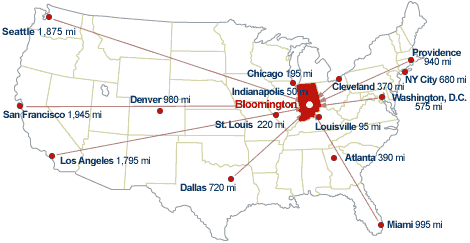
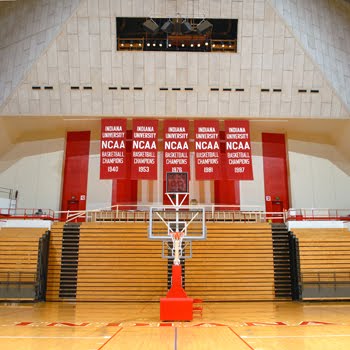


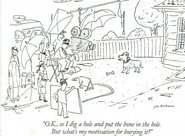





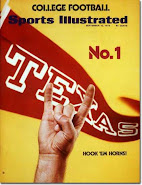
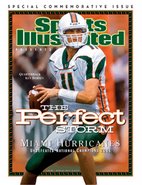
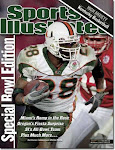
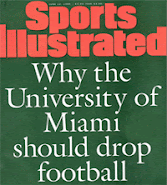
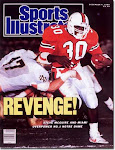
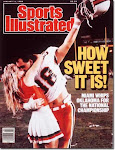
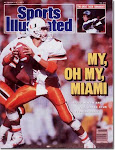

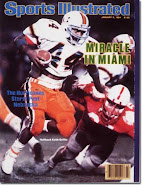
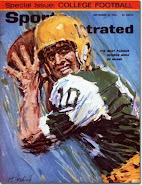
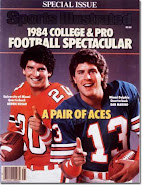

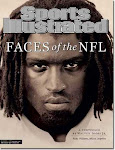
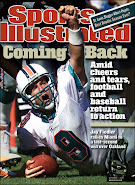
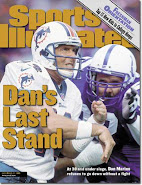
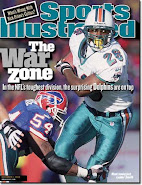
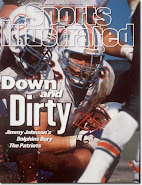

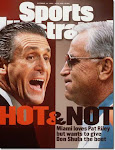

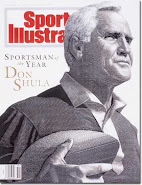
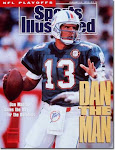
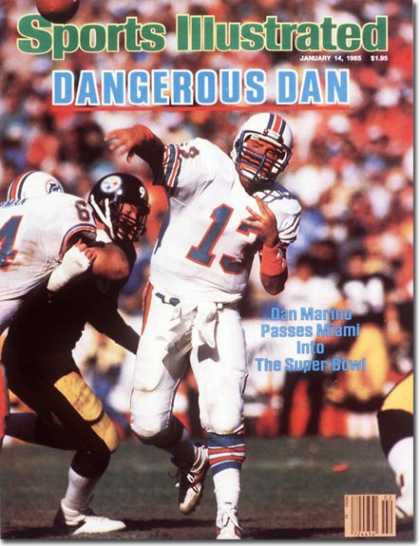

+Sep+10,+1984.jpg)
